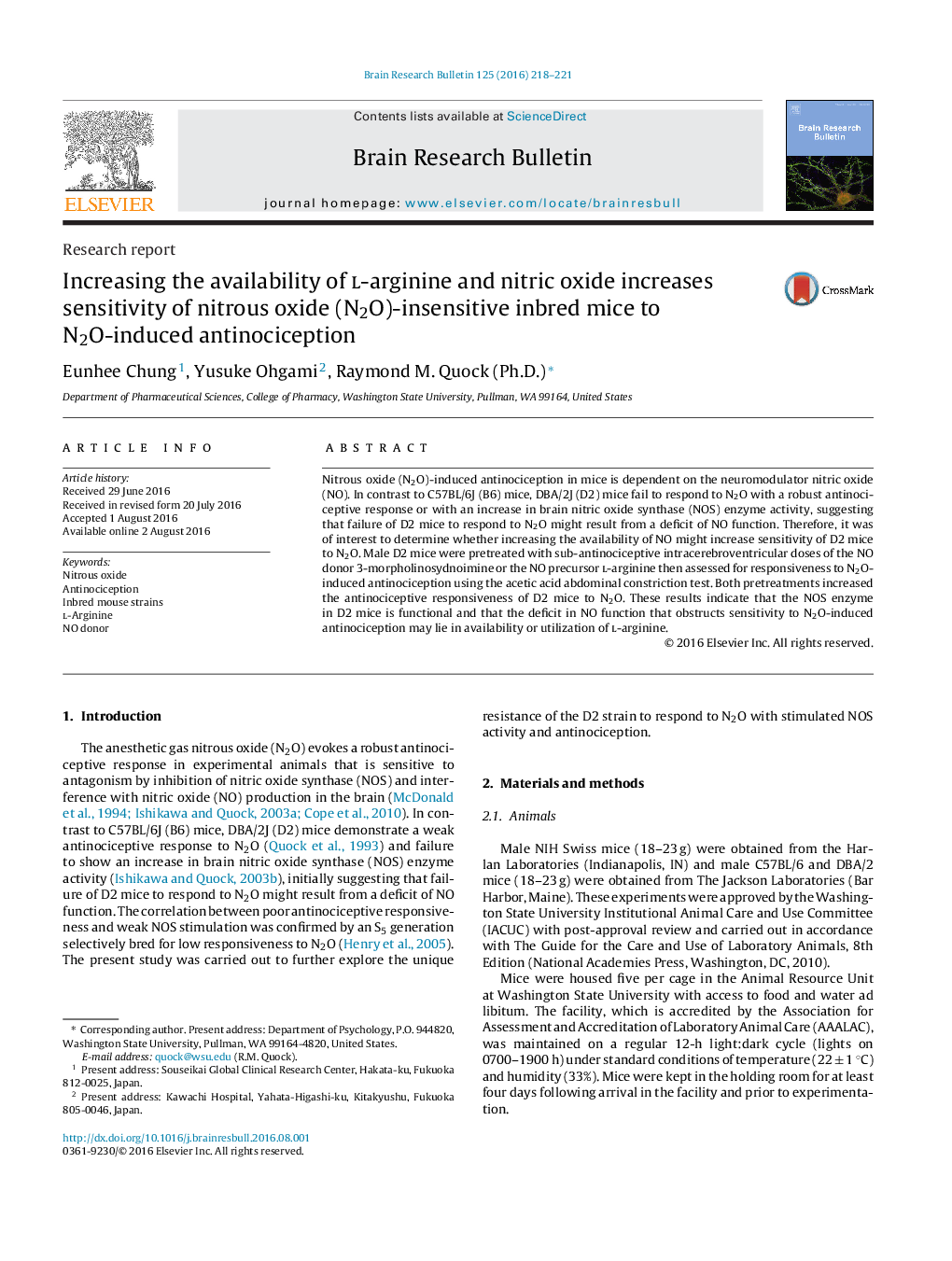| Article ID | Journal | Published Year | Pages | File Type |
|---|---|---|---|---|
| 6261556 | Brain Research Bulletin | 2016 | 4 Pages |
â¢DBA/2 (D2) inbred mice are relatively insensitive to N2O-induced antinociception.â¢Pretreatment with an NO-donor increased D2 sensitivity to N2O.â¢Pretreatment with l-arginine also increased D2 sensitivity to N2O.â¢Increasing availability of NO in D2 increased responsiveness to N2O.
Nitrous oxide (N2O)-induced antinociception in mice is dependent on the neuromodulator nitric oxide (NO). In contrast to C57BL/6J (B6) mice, DBA/2J (D2) mice fail to respond to N2O with a robust antinociceptive response or with an increase in brain nitric oxide synthase (NOS) enzyme activity, suggesting that failure of D2 mice to respond to N2O might result from a deficit of NO function. Therefore, it was of interest to determine whether increasing the availability of NO might increase sensitivity of D2 mice to N2O. Male D2 mice were pretreated with sub-antinociceptive intracerebroventricular doses of the NO donor 3-morpholinosydnoimine or the NO precursor l-arginine then assessed for responsiveness to N2O-induced antinociception using the acetic acid abdominal constriction test. Both pretreatments increased the antinociceptive responsiveness of D2 mice to N2O. These results indicate that the NOS enzyme in D2 mice is functional and that the deficit in NO function that obstructs sensitivity to N2O-induced antinociception may lie in availability or utilization of l-arginine.
